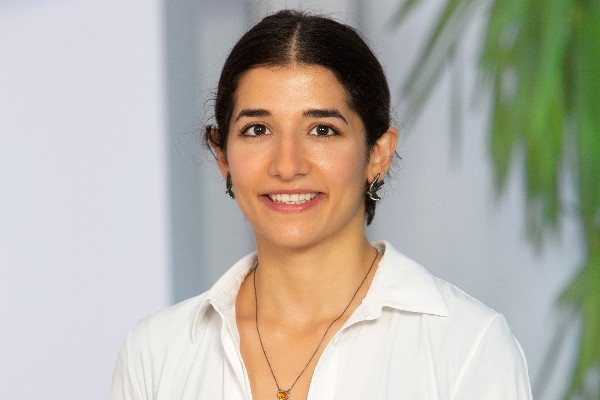
Recognising the importance of women in entrepreneurship at Tyndall, we are proud to feature Hasti Yavari, PhD student in the Biophotonics@Tyndall group and entrepreneur of Medguide, one of this year’s promising finalists from pre-accelerator programme ‘Explorer’.

PhD Student,
Biophotonics Group, IPIC,
Tyndall National Institute.
Tell us about your current role at Tyndall?
I am a PhD student in the Biophotonics Group, IPIC (SFI Centre for Photonics) at Tyndall, UCC working with micro-camera technology for surgical guidance applications.
Did you have a role model that inspired you to pursue a career in Optical Engineering and Biophotonics?
Not really, Biophotonics is a relatively new field and I decided to pursue this path out of curiosity and personal interest.
What motivated you to apply for the Explorer programme?
I wanted to gain a deeper understanding of how to commercialise a deep-tech business idea and learn first-hand from other entrepreneurs.
Tell us about your project Medguide and what you hope to achieve?
Medguide is about a novel imaging and diagnosis device for the cardiovascular space. We have a great technology and, with the help of the Explorer programme, we are hoping to identify market opportunities to commercialise it..
What supports have you received from the Explorer programme?
Mentorship, learning how to secure funding and the additional stages involved in setting up a deep-tech start-up.
What advice would you give to other PhD candidates looking to follow in your footsteps?
To give it a shot and ask as many questions as they can!
What do you think could be done to raise the profile of women working in STEM and #breakthebias (International Women’s Day theme this year)?
Giving credit when it’s due and recognising the accomplishments of STEM women can go a long way to encouraging younger students and researchers. In my experience compared to 10 years ago, when I started my bachelor’s degree in Electronics engineering, being a woman in STEM is much more normalised now. I hope, with consistent effort, we move towards a future with no bias for the next generations.
How do you think we can encourage more women in STEM to embrace entrepreneurship?
The University’s Technology Transfer Officers and programs like that of Explorer provide a strong support system that seeks to bridge the research and commercialisation worlds. In my opinion the extra challenge for women is having very few role models in the STEM entrepreneurship space. Seeing another woman who has walked the entrepreneurial path before me, gives me someone to aspire to be like, and keeps me motivated.
